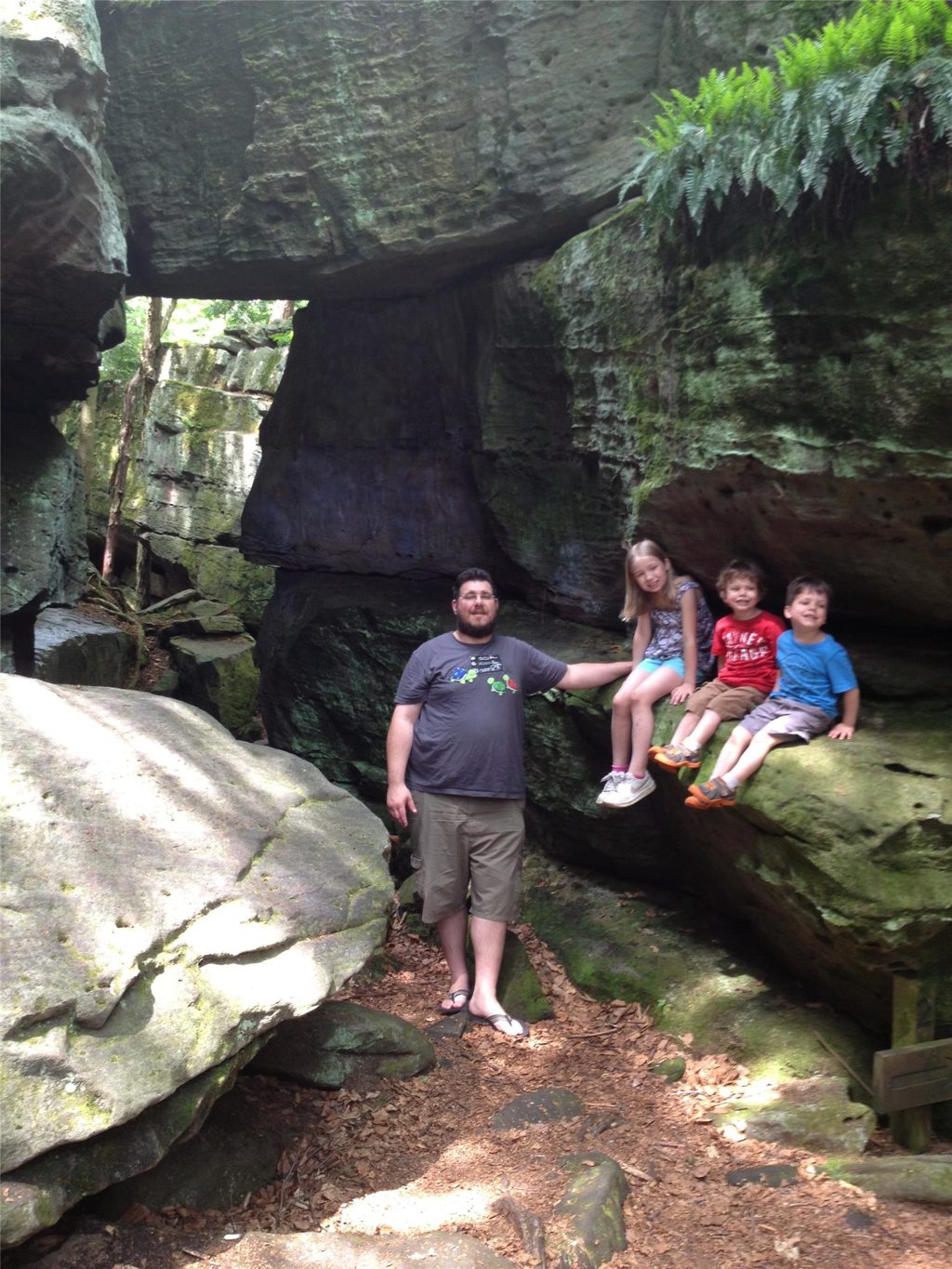
Celebrating National Donate Life Month
In April of each year, Penn Highlands Healthcare joins The Center for Organ Recovery & Education, or CORE, and other organ procurement organizations to celebrate National Donate Life Month.
During the entire month, people across the U.S. make a special effort to celebrate those who have saved lives by becoming organ donors. They encourage more Americans to follow their example by becoming eye, tissue, marrow and organ donors.
On any given day, the number of men, women and children waiting for an organ transplant in America is estimated to be nearly 115,000. At the age of 31 in 2008, Ben Reynolds of Brookville was placed on that list.
Reynolds, also a computer system analyst at Penn Highlands DuBois, started having symptoms in his late teens. Those symptoms persisted through his 20s. The disease responsible remained undiagnosed for many years. Focal segmental glomerulosclerosis, or FSGS, a condition where scarring of the kidney tissue occurs, was determined to be the cause. This is just one of the conditions or diseases that cause the loss of renal, or kidney, function.
Reynolds said of that time "being diagnosed with a terminal condition at a very young age was heart-breaking. But with advances in treatments and the successful outcomes of transplant procedures, I could see some light at the end of the tunnel."
The majority of organ donations occur after a donor has died. However, living donation is possible with certain organs and tissues, enabling doctors to save more people in desperate need of a transplant. Living kidney and liver donors can range from family members and friends to anonymous individuals if they meet the requirements to donate.
Reynolds was placed on the waiting list for a donor's kidney. With encouragement from healthcare professionals, he began the search for a living donor. Of the five candidates that were tested, only one was found to be considered for living donation.
The news of this match came as a shocking surprise to Reynolds. Friends since the age of 14, Richard Dixon of Clarion went through the tests without Reynolds knowing. Reynolds said, "Wendy and I were encouraged to give the information to family and friends, but I didn't know that Richard had done the tests."
It was Reynolds' wife, Wendy, also an employee of Penn Highlands DuBois that had contacted his long-time friend. Dixon said "After getting all of the information, it was a relatively easy decision to make. I will do anything I can to help my friend."
"Going through this really changed my view on organ donation,” Dixon said. “Before this experience, I didn't know much about it. I wasn't even designated as a donor on my license, but that has all changed."
“There are not words to express the how much appreciation we have for Richard for giving Ben the gift of life,” Wendy said. “He has given my husband the chance to watch his children grow up. It really is amazing that he was a match.”
“It has been challenging with five children to have my husband not feel well the majority of the time,” she added. “Especially having him diagnosed at such a young age. We just take it one day at a time.”
“And there is no way that I could express my gratitude to my friend, for what he is willing to do for me," Ben continued. "If able, I would do it for another a thousand times."
CORE, a federally designated not-for-profit organ procurement organization, works closely with donor families and designated healthcare professionals to deliver the gift of hope by promoting awareness and registration.
Penn Highlands offers facilitators for the CORE program at each of its hospitals. It is their additional role to represent the hospitals as the point of contact.
Rhonda Chilson, RN, Quality/Infection Control Director at Penn Highlands Elk said "In 2018, for example, Penn Highlands Elk alone referred 50 patients to CORE for potential organ and tissue donation. Of those, there were six tissue donors, and three eye donors that gave the precious gift of sight. Organ donation allows families to gain something positive during a difficult time of loss. It is very rewarding to know that our hospitals play a part in making the gift of life possible."
"One person can save the lives of as many as eight people,” Amy Powell, RN, Emergency Department Supervisor at Penn Highlands Brookville, noted. “We at Penn Highlands Healthcare have been collaborating with CORE for many years to provide staff and community education to promote awareness of the need to register as organ donors."
"CORE is important to our community to help those that need tissue or organs,” Liz R. Davis RN, CEN, Director of the Emergency Department at Penn Highlands Clearfield, said. “We receive feedback when someone has helped save a life through their donation. Having patients and families agree to donation changes lives during a time of hardship. CORE does a wonderful job of helping families through making that decision and showing the positive outcomes from a loss."
"Working with CORE, we are the link between donor families and recipients of the organs and tissues,” Barbara Barnett, RN, Clinical Manager at Penn Highlands DuBois, explains part of the process. “We will notify CORE. They then review the potential donor’s information to determine what gifts he or she would be able to donate. When there is potential for donation, a donor referral coordinator from CORE will talk to the donor’s family to discuss donation options."
Prior to his diagnosis, Reynolds knew very little about the donor programs, "There was a lack of knowledge about the process and importance of organ donation programs." Sharing his story to promote awareness of life-saving donation, Reynolds concluded, "That is the outcome that I would love to see."
Anyone who wants to help can sign up to be an organ donor when getting a new driver’s license or ID, or visit www.core.org at any time.
